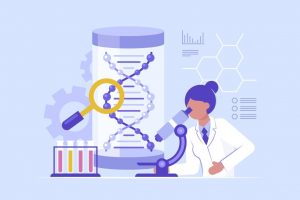Two years ago, the experts at the Forensic Medicine laboratory were stunned when they heard the news. The saliva and semen sampled from several women raped on the road from Cali to Palmira matched the genetic profile of a model from Cali investigated by the Prosecutor’s Office. The man, known for his statuesque body as Mister Colombia 2013, was arrested under the weight of at least ten complaints. His biological samples, cross-referenced with thousands of genetic tests kept by the State, gave him away. (Read: Attorney General’s Office propose creating a bank with the genetic profile of all Colombians).
This method is the scientific hope of Néstor Humberto Martínez, the attorney general of the country, to end impunity, a problem that leaves 99% of the country’s crimes unsolved. His idea, more or less, is to legalize the genetic bank of people linked to judicial processes that already operates in the country.

The United States has donated this tool to more than 50 countries. In 2002, it arrived to Colombia and, based on its technology, the genetics laboratories of Legal Medicine, DIJIN and CTI have built two banks, independent of each other. The first and most famous is in charge of searching missing persons. Thanks to this tool, four years ago, the remains of nine victims from the Palace of Justice were identified.
The second is a kind of Excel list in which people indicted for specific cases are included by court order. It is estimated that it contains more than 15,000 genetic profiles, 90% of them from sexual offenders and the rest from people accused of crimes against life.
But their searches are only half-hearted, because the majority of the prison population is not registered. Experts are unsure whether or not to store the DNA of those guilty of other types of crimes such as drug trafficking, corruption or theft, and they are always faced with the dilemma of whether or not to include minors. This is what Martinez intends to regulate.
Full article and original source: El Espectador










 EL SALVADOR
EL SALVADOR HONDURAS
HONDURAS

 BOLIVIA
BOLIVIA PERÚ
PERÚ